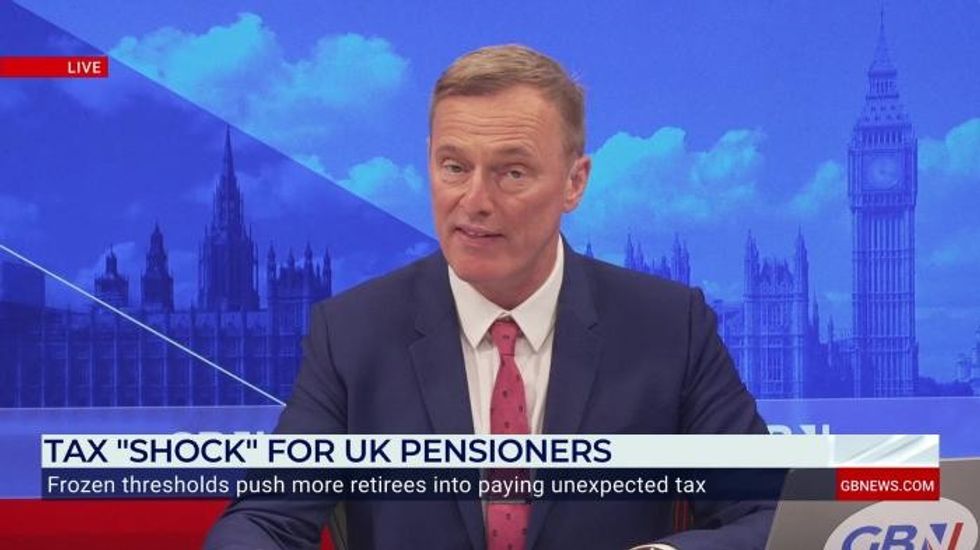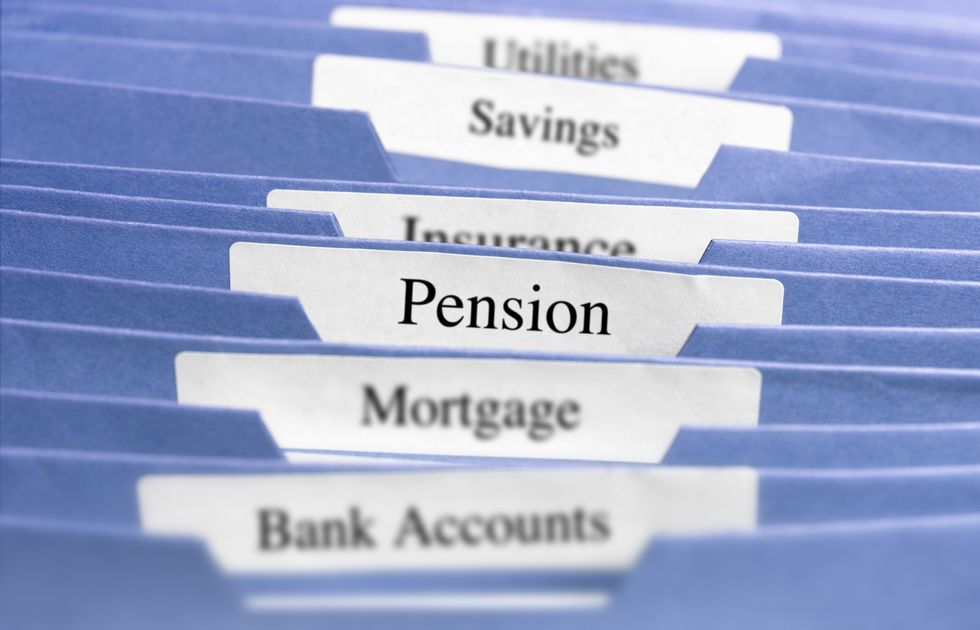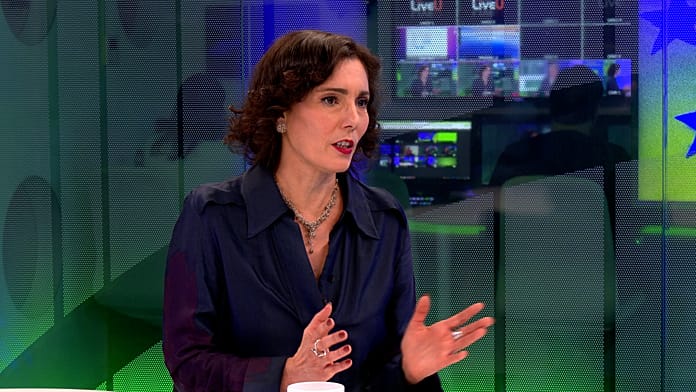Pension crisis looms as renters face £900,000 wealth gap by retirement
Renters face a staggering £889,189 shortfall compared to homeowners over the next three decades, creating a looming pension crisis for those unable to get on the property ladder, new analysis shows.The stark disparity comes as fewer people own homes compared to previous generations due to soaring house prices.The research from estate agency Savills exposes the true financial disadvantage of renting, with homeowners expected to accumulate over £1 million in property wealth whilst renters continue paying into retirement.With the average first-time buyer deposit now standing at 90 per cent of income, millions remain trapped in rental accommodation, unable to build the property wealth that traditionally funds retirement.This growing divide threatens to leave an entire generation financially vulnerable in their later years.The Savills data, produced for The i Paper, reveals homeowners initially pay £20,000 more than renters over 30 years, spending £1.03 million compared to £911,000 in rent.However, this extra outlay is more than offset by property sale proceeds of £1,010,923, based on average UK house prices and projected annual growth of 2.5 per cent.The analysis tracked a typical journey from a two-bed starter home through to a four-bed family property, with moves every seven years. It assumed a 22 per cent deposit on today's average house price of £271,000, requiring £59,620 upfront.Mortgage costs were calculated at 4.32 per cent initially, falling to 3.82 per cent after seven years.Meanwhile, renters following the same housing progression accumulate no assets whilst facing perpetual monthly payments extending well beyond working age.The research shows homeowners pay less than renters whilst living in two and three-bedroom properties, but costs shift dramatically when upgrading to a four-bed home.Lucian Cook, director of residential research at Savills, said: "Our analysis shows that the real stretch is the move from a three-bed to a four-bed, with home ownership costs moving back above the costs of renting for a period."Repair and insurance bills push four-bed ownership costs above rental prices at this stage."That is one of the reasons many don't make that move, even though it provides more affluent households with the opportunity to build up a bigger pool housing wealth in due course," Cook explained.Many homeowners instead choose to extend their three-bed properties to avoid these increased costs.The retirement implications are particularly severe, with research from Barnett Waddingham revealing homeowners already face inadequate retirement incomes of £21,000 annually, whilst renters expect just £19,000.This £2,000 gap compounds over retirement years, with data from Standard Life suggesting tenants may need an extra £400,000 in their pensions to keep pace with rising rents.The consultancy's At-Retirement Report found a third of renters expect housing costs to increase during retirement, whilst homeowners anticipate stable or decreasing expenses.Independent Age data shows a 55 per cent rise in over-65s renting during the past decade, highlighting the growing scale of the crisis.The research also indicates homeowners demonstrate greater engagement with their finances and investments than renters, potentially worsening the retirement divide.Paul Leandro, partner at Barnett Waddingham, warned: "One of the most critical wires in the ticking pensions timebomb is the bleak outcomes for renters in retirement, especially when compared to their homeowning counterparts."With more than a quarter of working over-50s still renting, Leandro highlighted the "dual challenges of lower confidence and less engagement with retirement planning and tangibly worse financial situations."He cautioned against using pension savings for house deposits, stating this "goes against the need to accumulate as much as possible before retirement.""Policymakers need to create a better framework that allows someone to save tax efficiently for a house deposit as well as for pension income," Leandro said."What's clear is that this issue won't just go away; we need direct intervention to protect this at-risk renting cohort."

Renters face a staggering £889,189 shortfall compared to homeowners over the next three decades, creating a looming pension crisis for those unable to get on the property ladder, new analysis shows.
The stark disparity comes as fewer people own homes compared to previous generations due to soaring house prices.
The research from estate agency Savills exposes the true financial disadvantage of renting, with homeowners expected to accumulate over £1 million in property wealth whilst renters continue paying into retirement.
With the average first-time buyer deposit now standing at 90 per cent of income, millions remain trapped in rental accommodation, unable to build the property wealth that traditionally funds retirement.
This growing divide threatens to leave an entire generation financially vulnerable in their later years.
The Savills data, produced for The i Paper, reveals homeowners initially pay £20,000 more than renters over 30 years, spending £1.03 million compared to £911,000 in rent.
However, this extra outlay is more than offset by property sale proceeds of £1,010,923, based on average UK house prices and projected annual growth of 2.5 per cent.
The analysis tracked a typical journey from a two-bed starter home through to a four-bed family property, with moves every seven years. It assumed a 22 per cent deposit on today's average house price of £271,000, requiring £59,620 upfront.
Mortgage costs were calculated at 4.32 per cent initially, falling to 3.82 per cent after seven years.

Meanwhile, renters following the same housing progression accumulate no assets whilst facing perpetual monthly payments extending well beyond working age.
The research shows homeowners pay less than renters whilst living in two and three-bedroom properties, but costs shift dramatically when upgrading to a four-bed home.
Lucian Cook, director of residential research at Savills, said: "Our analysis shows that the real stretch is the move from a three-bed to a four-bed, with home ownership costs moving back above the costs of renting for a period."
Repair and insurance bills push four-bed ownership costs above rental prices at this stage.
"That is one of the reasons many don't make that move, even though it provides more affluent households with the opportunity to build up a bigger pool housing wealth in due course," Cook explained.

Many homeowners instead choose to extend their three-bed properties to avoid these increased costs.
The retirement implications are particularly severe, with research from Barnett Waddingham revealing homeowners already face inadequate retirement incomes of £21,000 annually, whilst renters expect just £19,000.
This £2,000 gap compounds over retirement years, with data from Standard Life suggesting tenants may need an extra £400,000 in their pensions to keep pace with rising rents.
The consultancy's At-Retirement Report found a third of renters expect housing costs to increase during retirement, whilst homeowners anticipate stable or decreasing expenses.
Independent Age data shows a 55 per cent rise in over-65s renting during the past decade, highlighting the growing scale of the crisis.
The research also indicates homeowners demonstrate greater engagement with their finances and investments than renters, potentially worsening the retirement divide.
Paul Leandro, partner at Barnett Waddingham, warned: "One of the most critical wires in the ticking pensions timebomb is the bleak outcomes for renters in retirement, especially when compared to their homeowning counterparts."
With more than a quarter of working over-50s still renting, Leandro highlighted the "dual challenges of lower confidence and less engagement with retirement planning and tangibly worse financial situations."

He cautioned against using pension savings for house deposits, stating this "goes against the need to accumulate as much as possible before retirement."
"Policymakers need to create a better framework that allows someone to save tax efficiently for a house deposit as well as for pension income," Leandro said.
"What's clear is that this issue won't just go away; we need direct intervention to protect this at-risk renting cohort."







































